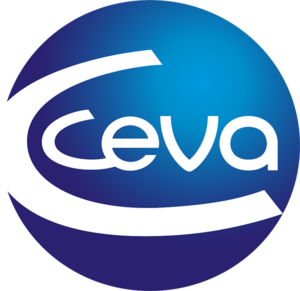Scout Bio Expands Gene Therapy Collaboration with the University of Pennsylvania Via Next-Generation Vector Technologies
- Partnership agreement includes exclusive rights in animal health to novel viral vector capsid and expands additional option rights to novel capsids
- Next-generation novel adeno-associated viral (AAV) vector capsid promises enhanced manufacturability
- Expanded partnership with Penn’s Gene Therapy Program continues to strengthen Scout Bio’s long-term leadership position in companion animal gene therapy
Philadelphia, PA December 7, 2021 – Scout Bio, a biotechnology company focused on one-time AAV gene therapies for major chronic pet health conditions, today announced the expansion of their foundational collaboration agreement with the Gene Therapy Program (GTP) at the University of Pennsylvania (Penn) to grant Scout Bio exclusive rights in the field of animal health to an emerging viral vector capsid technology for use in animal gene therapy, as well as extended option terms to other next-generation AAV vector technologies.
Scout Bio has undertaken a thorough evaluation of this new capsid, which is now the basis of several of Scout Bio’s programs undergoing in-species veterinary clinical trials. This capsid has been optimized for enhanced manufacturability to significantly increase yield per production batch. The next generation capsid may also deliver enhanced targeting of muscle cells, further supporting Scout Bio’s focus on gene therapy treatments that emphasize convenience for owners and ease of administration and integration into veterinary practice.
The collaboration expansion, which includes additional rights to novel capsids, leverages world leading AAV capsid discovery, development, and engineering programs under the direction of James M. Wilson, Director of the Gene Therapy Program at Penn and a co-founder of Scout Bio.
“This expanded collaboration supports Scout Bio’s continued scientific leadership in pet gene therapy and supports the manufacturing and commercial planning for our portfolio – which is already delivering meaningful clinical outcomes. We are proud to leverage the world’s leading AAV technologies to complement our in-house expertise in preclinical R&D, manufacturing, and clinical execution,” said Mark Heffernan, Ph.D., Chief Executive Officer at Scout Bio.
“Scout Bio’s complementary expertise means our partnership is ideally suited to deliver an entirely new paradigm to veterinary medicine and see transformational benefits in complex chronic diseases in companion animals,” Wilson said. “Scout Bio’s progress in veterinary patients is now showing significant potential of the AAV gene therapy platform for more expanded applications across multiple species.”
With three AAV product candidates in clinical development and the ability to move from concept to the clinic rapidly, Dr Heffernan said, “Scout Bio has built a discovery and development engine designed to meet the major needs in pet chronic disease with affordable, convenient, and durable one-time gene therapies.”
About AAV Vector-Based Gene Therapies For Pets
Scout Bio is the leading developer of gene therapies for pets. Each gene therapy candidate is a single injection designed to induce long-term expression of a therapeutic protein to treat a particular serious chronic veterinary disease or condition. Scout Bio uses a highly validated technology for the delivery of therapeutic genes called adeno-associated viral (AAV) vectors.
A ‘vector’ is a transporter for genetic material. AAV vectors are the most commonly used and studied delivery technology in gene therapy today. The exclusive rights covered in the collaboration agreement with Penn cover animal health applications of a new type of AAV vector capsid, which is the protein shell that mediates delivery of a vector’s payload to target cells. Capsid engineering can bring a range of additional benefits. For example, Scout Bio’s novel AAV vector capsids have delivered dramatic improvements in the manufacturability of the vector.
Scout Bio focuses on intramuscular delivery of gene therapies for pets to maximize convenience and integration into veterinary practice. The company’s data suggests that intramuscular delivery may deliver superior durability of therapeutic effect and mitigate any dampening effect of natural antibodies against AAV vectors. Scout Bio’s candidates are therefore optimized to specifically deliver therapeutic genes to muscle cells.
About Scout Bio
Scout Bio is a biotechnology company revolutionizing pet medicine by delivering a pipeline of one-time gene therapies for major chronic pet health conditions. Scout Bio’s therapeutics are designed to induce long-term expression of therapeutic proteins in pet patients using AAV vector technology. Scout Bio has a research and development collaboration with the University of Pennsylvania’s Gene Therapy Program, a leader in the field of genetic medicine research. Scout Bio is a private company headquartered in Philadelphia, Pennsylvania. For more information, see www.scoutbio.co
University of Pennsylvania Financial Disclosure
Dr. Wilson is a Penn faculty member, scientific collaborator, key advisor, and co-founder of Scout Bio. As such, he holds an equity stake in the Company, his laboratory at Penn receives sponsored research funding from Scout Bio, and as an inventor of the licensed technology he may receive additional future financial benefits under licenses granted by Penn to Scout Bio. The University of Pennsylvania also holds equity and licensing interests in Scout Bio.
For further information, please contact:
Fran Gaconnier
Scout Bio
214.417.4142
fran.gaconnier@scoutbio.co


